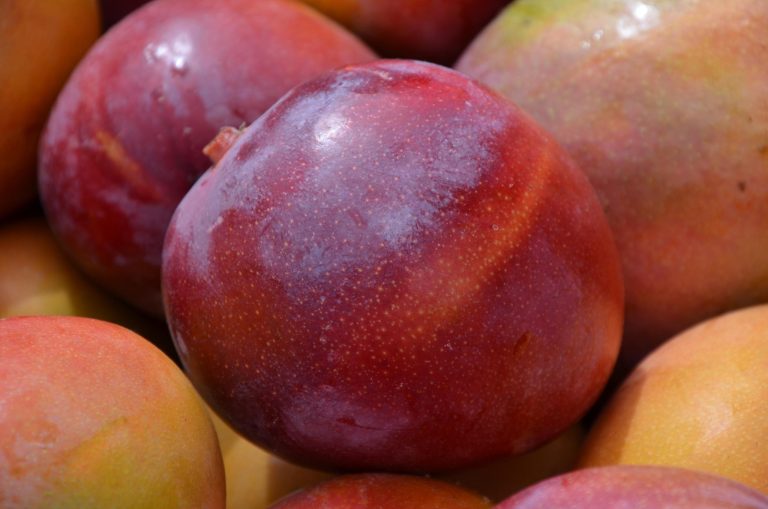São Paulo – Fruit exports from Brazil set a record high in 2023, when shipments to Arab countries also grew. According to the Brazilian Fruit Exporters’ Association (Abrafrutas), Brazil exported USD 1.2 billion in 2023, up 26.7% from 2022. In volume, 1.085 million tonnes were exported, up 6% from a year earlier. (Pictured, mangoes from Brazil.)
Data compiled by the Market Intelligence department of the Arab-Brazilian Chamber of Commerce (ABCC) show that fruit exports to the Arab countries grossed USD 17.5 million last year, up 36% from 2022, for 11,700 tonnes, up 95.3%. The trade balance with Arabs, however, saw a deficit, as Brazil imported USD 28.6 million worth of fruits, up 106.5%, or 32,900 tonnes, up 104.7%. The deficit was USD 11.1 million. Brazil imported mostly frozen fruit and citrus from Arab countries.
According to data from Abrafrutas, the United Arab Emirates was the top Arab exporter of Brazilian fruits at USD 11.5 million and 7,420 tonnes. Best-sellers were apples and melons. Melon was also the second best-selling fruit from Brazil last year at 228,000 tonnes and USD 189 million. The best-selling fruit, though, was mango at 266,000 tonnes, up 15% from 2022, grossing USD 312 million, up 51.5% from 2022.
Abrafrutas president Guilherme Coelho told ANBA that the 2023 performance may be ascribed to the quality of Brazilian fruit, sustainable practices, the work of the institution promoting fruit in the international markets and the geographic diversity of Brazil that allows the cultivation of various cultures and flatten the effects of adverse weather conditions. The European Union, the United Kingdom, and the United States are the top export destinations, but Coelho says that Abrafrutas has sought to expand exports to India, China, and the Middle East.
“The Arab countries play a relevant role in our fruit exports. Egypt in particular has been a huge partner. Furthermore, countries like the UAE, Saudi Arabia, and Lebanon have shown an increasing interest in our fruit. We acknowledge the fierce competition, but the quality and diversity of our products allow us to work in various market segments,” he says.
Coelho says that Abrafrutas is committed to “strengthening relations” with Arab countries and believes the biggest challenge is logistical. “The greater competitiveness of the Brazilian fruit compared to our competitors necessarily entails improving logistics, but it is worth stressing that we have advanced with new technologies reducing the shipping time to these destinations.” He believes part of the efforts made to increase the competitiveness is in the heavy use of technology and the use of alternative export transport modes.
Translation by Guilherme Miranda




